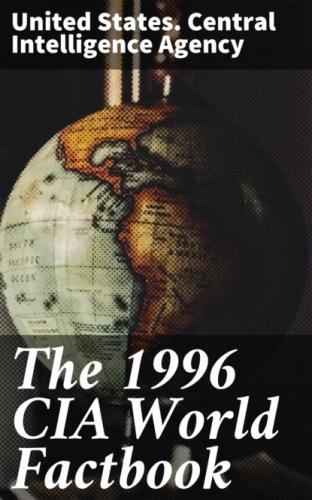Constitution: 2 June 1991
Legal system: based on French civil law system and customary law
Suffrage: none
Executive branch:
chief of state: President Captain Blaise COMPAORE (since 15 October
1987) elected for a seven-year term by popular vote; election last
held NA December 1991 (next to be held NA 1998)
head of government: Prime Minister Roch KABORE (since NA March 1994)
appointed by the president
cabinet: Council of Ministers appointed by the president
Legislative branch: unicameral Assembly of People's Deputies: elections last held 24 May 1992 (next to be held NA 1997); results - percent of vote by party NA; seats - (107 total), ODP-MT 78, CNPP-PSD 12, RDA 6, ADF 4, other 7 note: the current law also provides for a second consultative chamber, which has not been formally constituted
Judicial branch: Appeals Court
Political parties and leaders: Organization for People's Democracy
- Labor Movement (ODP-MT), ruling party, Secretary General Simon
COMPAORE; National Convention of Progressive Patriots-Social
Democratic Party (CNPP-PSD), Moussa BOLY; African Democratic Rally
(RDA), Gerard Kango OUEDRAOGO; Alliance for Democracy and Federation
(ADF), Amadou Michel NANA
Other political or pressure groups: committees for the defense of
the revolution; watchdog/political action groups throughout the
country in both organizations and communities
International organization participation: ACCT, ACP, AfDB, CCC,
ECA, ECOWAS, Entente, FAO, FZ, G-77, IBRD, ICAO, ICC, ICFTU, ICRM,
IDA, IDB, IFAD, IFC, IFRCS, ILO, IMF, Intelsat, Interpol, IOC, ITU,
NAM, OAU, OIC, PCA, UN, UNCTAD, UNESCO, UNIDO, UPU, WADB, WCL, WFTU,
WHO, WIPO, WMO, WToO, WTrO
Diplomatic representation in US: chief of mission: Ambassador Gaetan R. OUEDRAOGO chancery: 2340 Massachusetts Avenue NW, Washington, DC 20008 telephone: [1] (202) 332–5577, 6895
US diplomatic representation: chief of mission: Ambassador Donald J. MCCONNELL embassy: Avenue Raoul Follerau, Ouagadougou mailing address: 01 B. P. 35, Ouagadougou telephone: [226] 306723 through 306725 FAX: [226] 303890
Flag: two equal horizontal bands of red (top) and green with a yellow five-pointed star in the center; uses the popular pan-African colors of Ethiopia
Economy———
Economic overview: One of the poorest countries in the world, Burkina Faso has a high population density and a high population growth rate, few natural resources, and a fragile soil. Economic development is hindered by a poor communications network within a landlocked country. Agriculture is mainly subsistence farming. Industry remains dominated by unprofitable government-controlled corporations. Following the Communaute Financiere Africaine currency devaluation on 12 January 1994, exports appear to have risen, but no official figures have been released yet. The upswing apparently continued in 1995, with growth perhaps at 4%. The government has updated its development program in conjunction with international agencies, yet even with the best of plans, the government faces formidable problems on all sides.
GDP: purchasing power parity - $7.4 billion (1995 est.)
GDP real growth rate: 4% (1995 est.)
GDP per capita: $700 (1995 est.)
GDP composition by sector: agriculture: 32% industry: 24% services: 44% (1990 est.)
Inflation rate (consumer prices): 5% (1995 est.)
Labor force: NA (most adults are employed in subsistence
agriculture)
by occupation: agriculture 80%, industry 15%, commerce, services,
and government 5%
note: 20% of male labor force migrates annually to neighboring
countries for seasonal employment (1984)
Unemployment rate: NA%
Budget:
revenues: $483 million
expenditures: $548 million, including capital expenditures of $189
million (1992)
Industries: cotton lint, beverages, agricultural processing, soap,
cigarettes, textiles, gold
Industrial production growth rate: NA%
Electricity: capacity: 60,000 kW production: 190 million kWh consumption per capita: 17 kWh (1993)
Agriculture: peanuts, shea nuts, sesame, cotton, sorghum, millet, corn, rice; livestock
Exports: $273 million (f.o.b., 1993)
commodities: cotton, gold, animal products
partners: EC, Cote d'Ivoire, Taiwan, Thailand
Imports: $636 million (f.o.b., 1993)
commodities: machinery, food products, petroleum
partners: EC, Africa, Japan
External debt: $1 billion (December 1993 est.)
Economic aid:
recipient: ODA, $NA
Currency: 1 Communaute Financiere Africaine franc (CFAF) = 100
centimes
Exchange rates: CFA francs (CFAF) per US$1 - 500.56 (January
1996), 499.15 (1995), 555.20 (1994), 283.16 (1993), 264.69 (1992),
282.11 (1991)
note: beginning 12 January 1994 the CFA franc was devalued to CFAF
100 per French franc from CFAF 50 at which it had been fixed since
1948
Fiscal year: calendar year
Transportation———————
Railways:
total: 622 km (1995 est.)
narrow gauge: 622 km 1.000-m gauge (517 km Ouagadougou to Cote
d'Ivoire border and 105 km opened in 1993 from Ouagadougou to Kaya)
Highways:
total: 16,400 km
paved: 1,280 km
unpaved: 15,120 km (1987 est.)
Ports: none
Airports:
total: 23
with paved runways over 3 047 m: 1
with paved runways 2 438 to 3 047 m: 1
with paved runways under 914 m: 8
with unpaved runways 1 524 to 2 437 m: 3
with unpaved runways 914 to 1 523 m: 10 (1995 est.)
Communications———————
Telephones: 21,000 (1993 est.)
Telephone system: all services only fair domestic: microwave radio relay, open wire, and radiotelephone communication stations international: satellite earth station - 1 Intelsat (Atlantic Ocean)
Radio broadcast stations: AM 2, FM 1, shortwave 0
Radios: NA
Television broadcast stations: 2 (1987 est.)
Televisions: 49,000 (1991 est.)
Defense———
